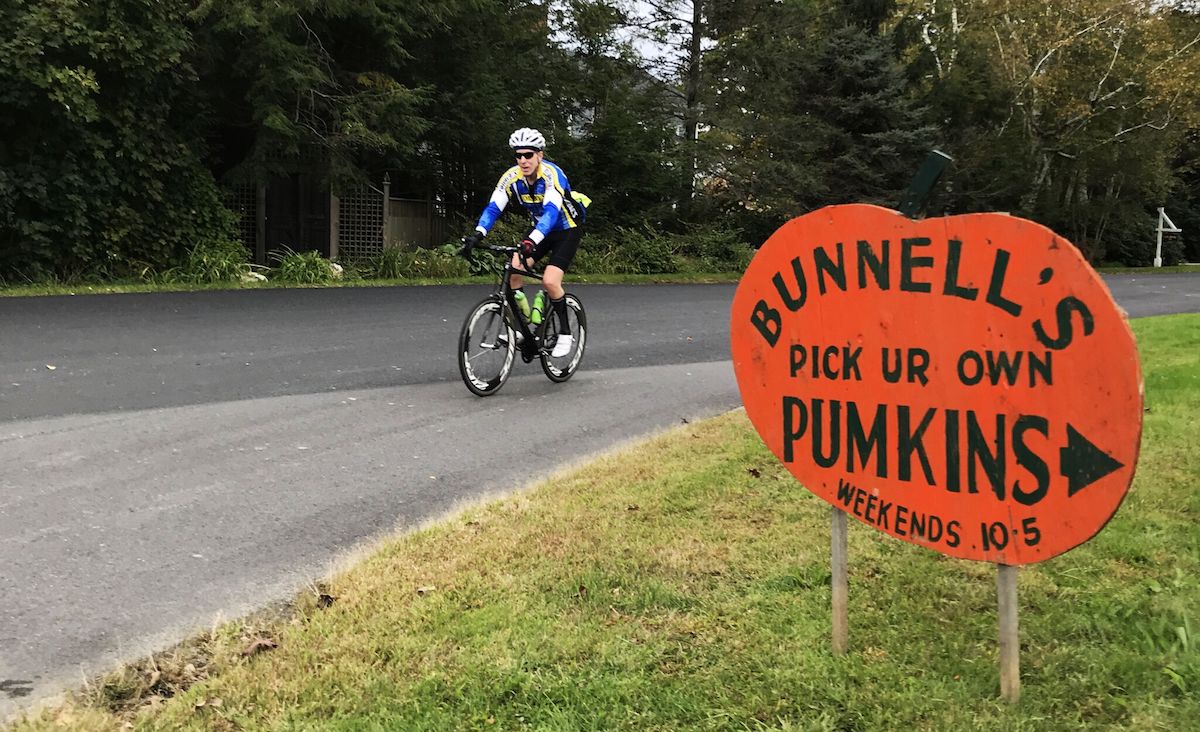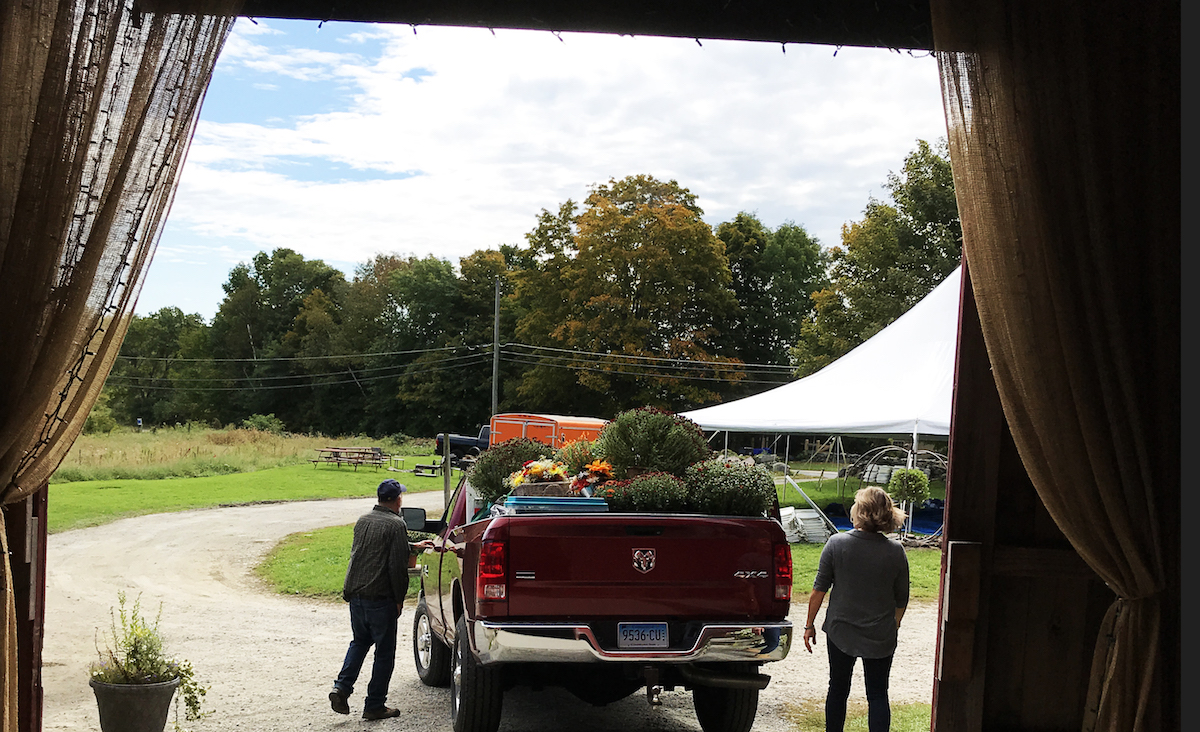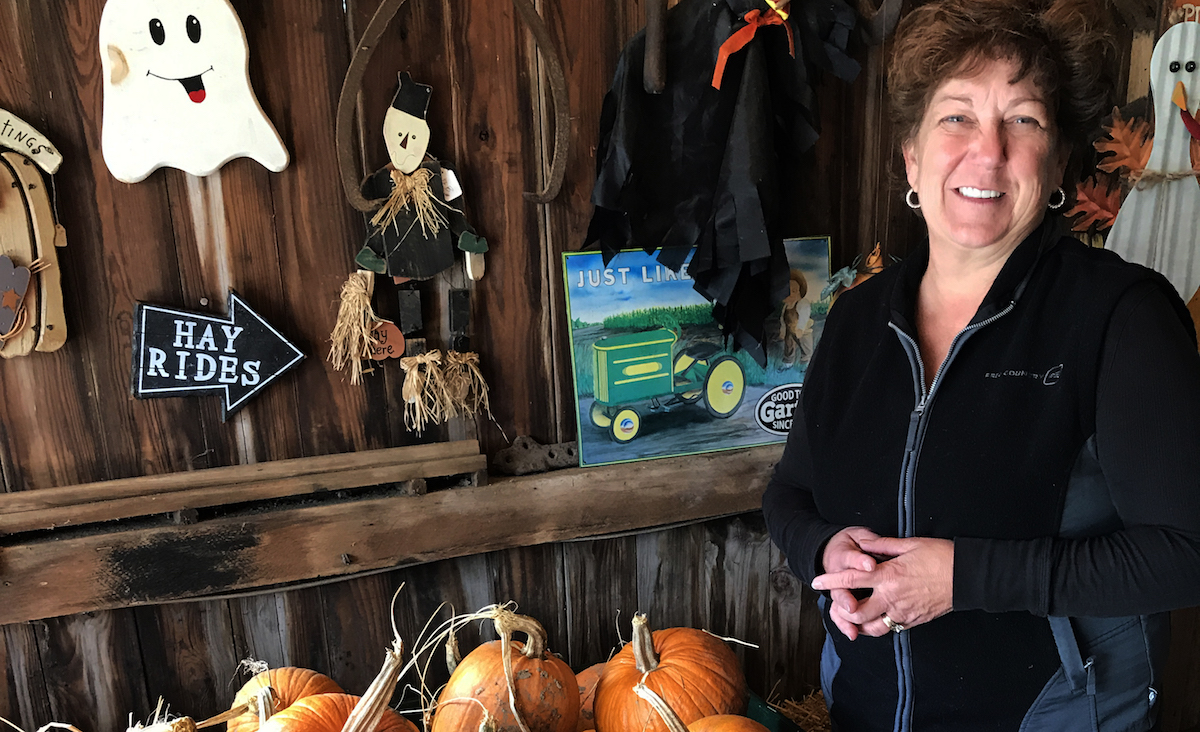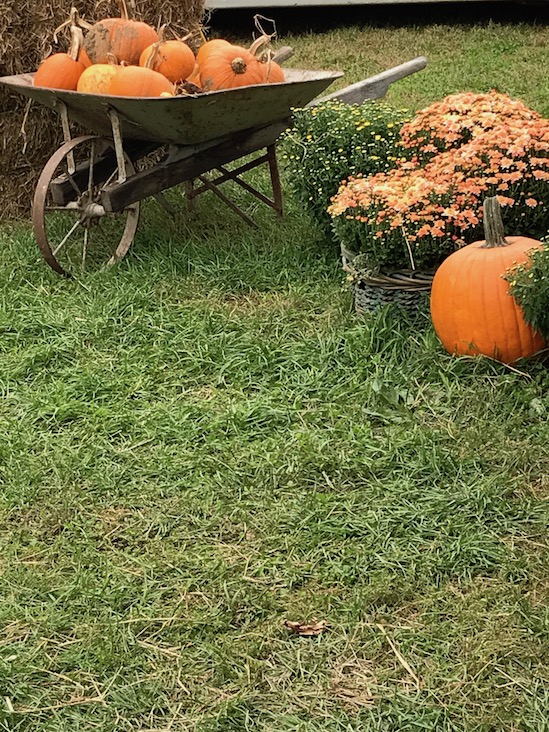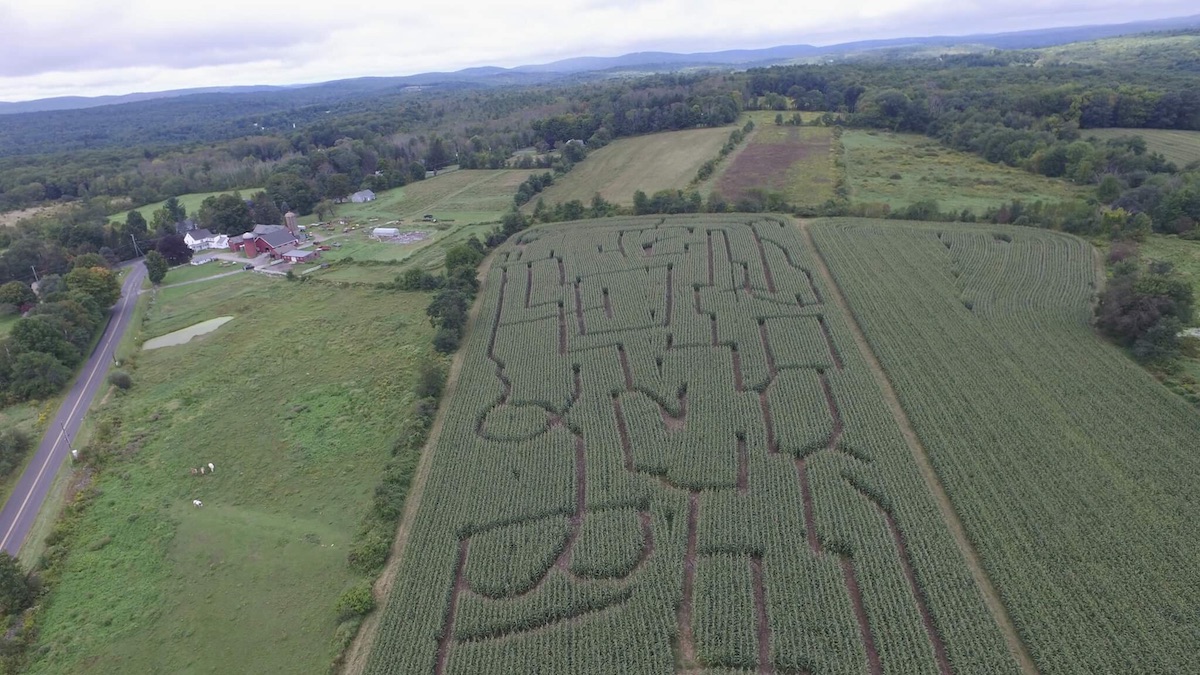Portrait of a Farm in October: Bunnell Farm
It's open season for pumpkins at this family farm in Litchfield, Conn.

It's open season for pumpkins at this family farm in Litchfield, Conn.
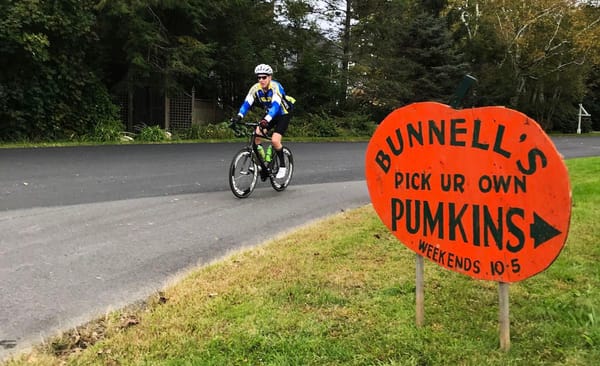
The instinct to photograph everything in sight will occur if you happen upon a certain corner of Connecticut.
In the northwest hills just south of the Berkshires, little has changed since the town of Litchfield was settled in 1720. Just a stone’s throw from the center of town, where diners sit in the sun on Bohemian Pizza's outdoor patio, miles and miles of stone walls, some mortared, some not, guide the traveler past fields and farms and barns. Flocks of wild turkeys occupy a two-lane road where an alley of pines rise up along the ridge to meet motorists and cyclists. This is the back way to Bunnell Farm, a family enterprise where the barn doors swing open for the fall season.
A tanned, lanky man with a glint in his grey eyes, Rick Bunnell laughed when asked if he ever gets a vacation.
“Ha!” he said. "Next week I'll drive up to Cortland, New York to the horse auction.”
Bunnell has never been away from the farm in summer in his entire life.
He stands inside of the barn, where he can see the front and back of the property. During our conversation he watched, through the back door, tractors climbing toward the corn maze in the fields, and out front, where a tent was being disassembled.
Swallows flit above our heads in the barn, a long, low-slung affair with a central entry and three bays that originally were for animals, the threshing of grain and hay storage.
Described as a "Bank Barn" because of its "side entry" design, the structure dates back to the late 1700s. Today horses occupy the animal bay and, although a hay bale or two may be on view, weddings take place in the other bay. In the middle is a farm store where a young woman was offering visitors pumpkin cupcakes warm from the oven, and cider donuts.
These days Bunnell is on task overseeing a flock of turkeys that will be sold just before Thanksgiving, a team of Belgian draught horses, several pigs raised for family consumption and a fleet of machines it takes to farm.
The land is part of Connecticut's Farmland Preservation Program and its barn is listed on the State Register of Historic Places.
"We're here to share this land," said Helen Bunnell, a woman who grew up on a farm. She and her husband both grew up on farms; now she works full time as the town tax collector, in between farming and weddings and being a mother. They share the values of four previous generations of Bunnells who farmed the land before them.
"All of us work the land together with one or two other hired hands," she said. She smiles at the sky for the briefest appreciation of a perfect day and then attends to a truck full of mums, a remnant of yesterday’s wedding celebration.
The Bunnell children have worked with them on the farm since infancy. The youngest is a senior in high school and, between soccer and hockey practice, dons his farming gear to help the clan get the place ready for pumpkin season.
On the afternoon I visited, the last Saturday in September, he got up from lunch at a picnic table to walk over to the front of the barn, holding a pumpkin-shaped sign, and wielded a rubber mallet to whack it into place. When he straightened up to walk away, two cyclists rode up the drive to investigate the farm store. They were followed by a car with Connecticut plates and a back seat full of children. Soon the horses would be bringing wagons of visitors up the hill to navigate the curious corn maze with the profile of the recently deceased patriarch of the family, Bud Bunnell, etched into the path. But there is little time for this fleeting season and a field of pumpkins awaits just above the hoop house next to which a fluttering flock of turkeys peck and preen in the afternoon sun.
The season is officially in full swing.
Bunnell Farm
524 Maple St., Litchfield, CT
(860) 567-9576
